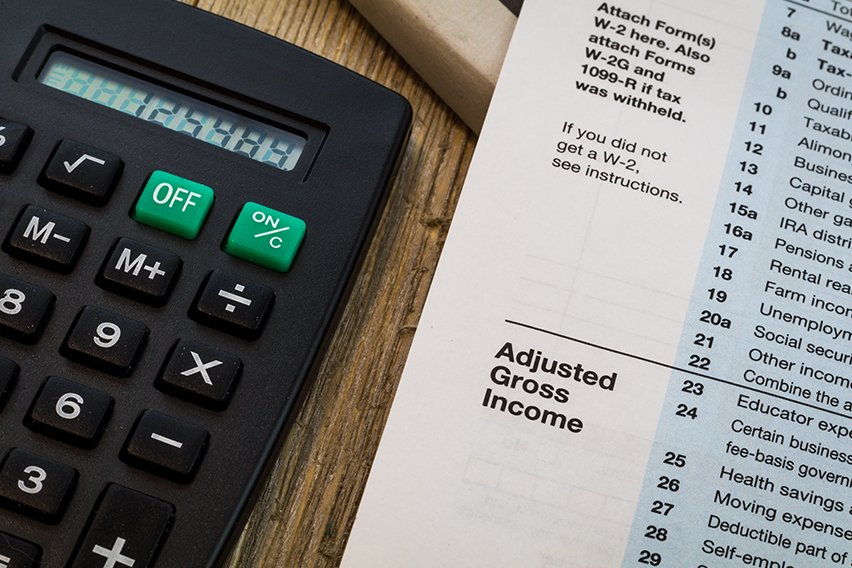What Is Net Pay?

Net pay is often called your ‘take home pay’. It’s the amount employees get after deductions are taken off their gross pay.
It’s important to be accurate if you’re working out payslips for your staff. And it’s important to check the details of your wage slip if you’re an employee. The first numbers you need to be sure of are: gross pay, any applicable deductions, net pay.
Here’s What We’ll Cover:
What’s the Difference Between Gross Pay and Net Pay?
What Deductions Are Taken Out of My Gross Salary?
Does My Tax Code Have Anything to Do With My Net Pay?
What’s the Difference Between Gross Pay and Net Pay?
Gross pay is your pre-tax and pre-deductions income amount. It’s the annual salary figure included on job adverts. Gross pay is always the largest number on your payslip. Extra things like overtime, bonuses and commissions are all part of your total gross pay.
Here’s how to work out your gross annual salary from 1 month’s payslip.
- Your ‘pay period’- how frequently you get paid – is 1 month
- In 1 year, you have 12 pay periods
- Take the gross pay figure for this month and multiply it by the number of pay periods in a year to get your gross annual salary

For example:
- £2,000 gross pay per month
- 12 pay periods in 1 year
- £2,000 X 12 = £24,000
- Gross annual salary = £24,000
And for those that earn an hourly wage…
- How many hours you work every week
- Your hourly rate of pay
- Number of hours per week X hourly rate = How much you earn per week (gross)
- Amount you earn per week X 48 (number of working weeks in the year) = gross annual income
For example:
- You earn £12.00 per hour
- You work 35 hours per week
- Gross weekly salary = £12 X 35 = £420
- Gross annual salary = £420 X 48 = £20,160
Net pay is the amount you’re left with after income tax, National Insurance Contributions (NICs) and any other deductions have been taken out. Employers are legally required to give payslips to all their employees and workers. And they must clearly show all of these different amounts. This rule doesn’t apply to contractors or freelancers you hire.
The definitions make understanding the net pay formula simpler:
Net pay = Gross pay – deductions
What Deductions Are Taken Out of My Gross Salary?
There are mandatory deductions that your employer must take from your gross earnings. And some voluntary deductions that you might also decide on.
Mandatory deductions include:
National Insurance Contributions
Everyone pays National Insurance Contributions when they reach the age of 16 and start earning over £184 per week. They are to make sure you “qualify for certain benefits and the State Pension.”
Income Tax
As an employee, you pay income tax through the Pay As You Earn (PAYE) system. This means that your tax is deducted and paid to HMRC by your employer from your taxable income.
For employees, income tax payments are collected gradually throughout the year – rather than in 1 or 2 lump sums. As a self-employed person, the tax rates and bands are the same, but you declare your earnings on a tax return that’s part of the self-assessment system of tax reporting.
The amount of income tax you pay is determined by how much you earn per year and where you live in the UK. The devolved parliaments of Scotland and Wales have the right to set their own income taxes. These rates are only fixed for 1 year, with governments implementing any changes to taxable wages in their annual Budgets.
In England, Wales and Northern Ireland income tax brackets for 2021-22 tax year are:
- Income of £0 and £12,570 – 0% Personal Allowance rate
- Between £12,571 and £50,270 – 20% Basic Rate
- Between £50,271 and £150,000 – 40% Higher Rate
- Over £150,001 – 45% Additional Rate
Example:
- Your gross annual salary is £35,000
- You’re entitled to £12,570 tax free Personal Allowance, so you don’t pay any income tax on that first £12,500
- £35,000 – £12,570 = £22,430
- £22,430 is in the Basic Rate tax band (between £12,501 and £50,000)
- You will pay 20% of this £22,430 as income tax to HMRC = £4,486
In Scotland, the income tax brackets for 2021-22 are:
- Income of £0 – £12,570 = Personal Allowance 0%
- Between £12,570 and £14,667 – 19% Starter Rate
- Between £14,667 and £25,296 – 20% Scottish Basic Rate
- Between £25,296 and £43,662 – 21% Intermediate Rate
- Between £43,662 and £150,000 – 41% Higher Rate
- Over £150,000 – 46% Top Rate
Student Loan
Once you earn over the repayment threshold amount specified by your Student Loan, the agreed amount will be automatically deducted from your pay.

Voluntary Deductions
There are a whole host of different voluntary deductions that may apply to you, such as:
- Pension
- Health Plan
- Dental insurance
- Life insurance
- Donations to charity
You just need to understand exactly which deductions are being taken from your gross pay. This might need a conversation with someone if particular payments shown on your payslip need clarification. Unfortunately not everything is as simple as your FreshBooks account!
Does My Tax Code Have Anything to Do With My Net Pay?
This is an excellent question. At first glance, it doesn’t seem like tax codes and net pay are connected. But having an accurate tax code is crucial because, if it’s wrong, then you’re not paying the right amount of tax.
Despite the fact that HMRC issues the tax codes, the responsibility for making sure that you’re paying the correct amount of tax sits squarely on your shoulders.
Your employer works out how much tax to take from your wages to give to HMRC based on the information within your tax code. For example, the number represents the amount of Personal Allowance you’re entitled to. This tax year, the majority of UK taxpayers paying the Basic Rate of income tax will have the number 1257 in their tax code. Employers multiply that number by 10 to see how much tax free Personal Allowance you get. Anything over that amount becomes your taxable income.
So, while you’re checking your gross pay, deductions and net pay – make sure you’ve got the right tax code. It’s what all the other calculations are based on. Here’s FreshBooks’ detailed UK tax code guide to help you.
RELATED ARTICLES

 What Is Gross Pay? Definition, Examples & Calculation
What Is Gross Pay? Definition, Examples & Calculation What Is Finance: Definition & Types of Finance
What Is Finance: Definition & Types of Finance What Does an Accountant Do: Role, Types, and Skills Required
What Does an Accountant Do: Role, Types, and Skills Required How to Set Up a Direct Debit for Payments
How to Set Up a Direct Debit for Payments Financial Accountant vs Management Accountant
Financial Accountant vs Management Accountant Do I Need An Accountant? Signs That You Might Need One
Do I Need An Accountant? Signs That You Might Need One